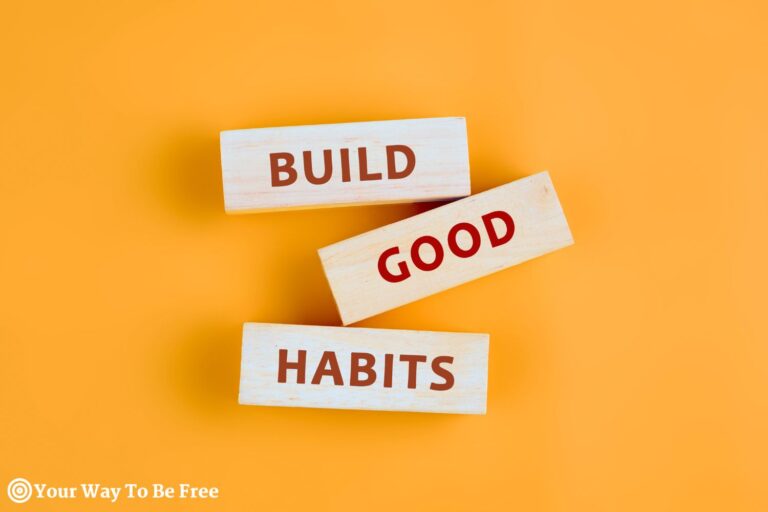Why We Love Multitasking
Multitasking feels like a superpower, allowing us to juggle tasks and tick off to-dos with ease. Whether it’s answering emails during a meeting or cooking dinner while catching up on the latest show, many of us multitask daily, thinking it makes us more productive. In today’s fast-paced world, it’s become almost a badge of honor, a sign that we’re successfully keeping up with life’s demands.
For many of us, it’s not just a habit, it’s a source of pride. We tell ourselves, “I can juggle everything,” and feel accomplished when we manage to get through a hectic day by multitasking. We’ve been conditioned to believe that being busy equates to being successful, and multitasking feeds right into that narrative.
But here’s the catch: while multitasking gives us the illusion of efficiency, it often leads to mistakes and stress. How many times have we missed something important or felt mentally drained after trying to do too much at once?
It’s time to take a closer look at what multitasking really does to our brains, and why focusing on one task at a time could be the key to working smarter, not harder.
Related: The Best Ways to Unwind: Practical Tips for Effective Stress Relief
The Impact of Multitasking on Our Brain
While multitasking feels productive, our brains aren’t designed to handle it effectively. Instead of doing tasks simultaneously, we’re actually shifting focus rapidly from one task to another, a process called task-switching.
This constant back-and-forth might make it seem like we’re getting more done, but it takes a toll on our cognitive abilities. Over time, frequent multitasking can even change the structure of our brains.
Studies show that multitasking, especially with digital devices, can reduce the density of grey matter in areas responsible for focus, decision-making, and emotional regulation. In short, multitasking could weaken our ability to concentrate, make clear decisions, and manage stress.
When we jump between tasks, our brain has to work harder to refocus each time, leading to mental fatigue, slower processing, and more mistakes. Research from the University of Sussex found that heavy multitaskers had less grey matter in the part of the brain responsible for decision-making and empathy.
Simply put, multitasking not only makes us less efficient in the moment, but over time, it could make it harder to focus and process complex information. While it might seem harmless to check emails during a meeting or juggle tasks at work, these habits could have long-term effects on our brain’s health and performance.
The Hidden Costs of Multitasking
Multitasking doesn’t just take a toll on our brains, it affects many aspects of our lives, from physical health and mental clarity to emotional well-being and personal connections. Let’s break down the hidden costs of multitasking and how it impacts us:
1. Physical Strain
When we’re juggling multiple tasks, it’s easy to forget about our physical well-being. We often end up sitting for hours in awkward positions, hunched over devices or glued to screens. This lack of movement, combined with poor posture, can lead to chronic issues like neck pain, backaches, and repetitive strain injuries. Our eyes also take a hit, straining to focus as we constantly switch between screens and tasks. Over time, these physical stresses can accumulate, leading to long-term discomfort and even more serious health problems if left unaddressed.
Related: Move More, Work Better: 5 Easy Ways to Sneak in Exercise at Work
2. Mental Fatigue and Stress
Switching between tasks constantly can overload our mental capacity, leading to feelings of stress and exhaustion. Our brains need time to transition between activities, and without it, we end up feeling scattered and overwhelmed. This constant state of mental juggling raises stress levels and can make it difficult to stay focused and calm. Over time, this can lead to burnout, where we feel emotionally drained and mentally exhausted, struggling to find motivation or joy in our tasks. It’s like our brains are running a marathon without a break, and eventually, we hit a wall.
3. Emotional Disconnection
When we multitask, we’re often not fully present with the people around us. Whether it’s talking to loved ones while scrolling through our phones or trying to listen during meetings while handling other tasks, our divided attention means we miss out on truly connecting. This lack of presence can lead to emotional disconnection, causing us to overlook important cues and disengage from meaningful conversations. Over time, this can weaken our relationships and leave us feeling isolated, even when we’re surrounded by others.
What to Do Instead: The Power of Monotasking
The good news? There’s a better way to get things done: monotasking. This means focusing on one task at a time, giving it your full attention before moving on to the next. Unlike multitasking, which scatters our focus, monotasking allows us to dive deeper into each task, leading to better quality work and less stress. By concentrating on a single activity, we can work more efficiently, feel less overwhelmed, and even find more satisfaction in what we’re doing.
Incorporating monotasking into your daily routine might seem challenging at first, especially if you’re used to juggling multiple responsibilities. Start small by setting aside specific blocks of time for focused work. Use tools like timers or apps to help you stay on track and minimize distractions. Remember to take short breaks between tasks to reset your mind and keep your energy levels up.
By embracing monotasking, you’re not just completing tasks; you’re fostering a healthier, more productive mindset. You’ll find that your work becomes more meaningful, your stress levels decrease, and your ability to engage deeply with what truly matters in your life increases. It’s about working smarter, not harder, and finding a balance that allows you to be both productive and present in everything you do.
Related: Goals For Personal Growth: How To Set Meaningful And Achievable Goals
Conclusion: Slow Down to Speed Up
Multitasking may seem like a skill, but in reality, it’s slowing you down.
By giving your brain the chance to focus fully on one thing at a time, you’ll not only get more done but also feel less stressed in the process. Instead of spreading ourselves thin, let’s focus on doing one thing well at a time. It’s not about getting more done, it’s about doing things better.
So, take a breath, slow down, and embrace the power of giving your full attention to each moment. You’ll be amazed at the difference it makes!
Related: Small Steps, Big Changes – Practical Approaches to Strengthening Self-Discipline








2 Responses
This is really interesting, You’re a very skilled blogger. I’ve joined your feed and look forward to seeking more of your magnificent post. Also, I’ve shared your site in my social networks!
very informative articles or reviews at this time.